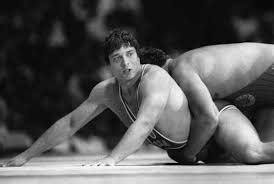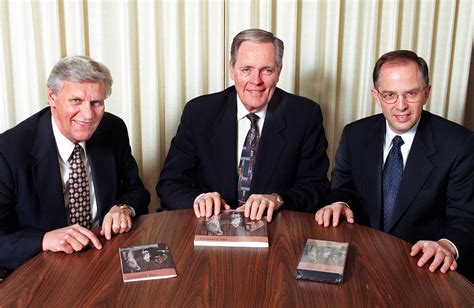Цитата Оррина Вудворда
Успех обеспечен, когда человек боится боли сожаления больше, чем боли процесса.
Связанные цитаты
Боль — физическая, эмоциональная и духовная боль — это больше, чем просто состояние, которое нужно заглушить, онеметь или «исправить». Боль во всех ее формах также является посланием, своего рода сигналом бедствия для наших сердец и умов. Бывают моменты, когда действительно важно настроиться на это сообщение и просто слушать его. Когда мы не слушаем, наше понимание мира все больше и больше искажается, и мы становимся способными делать вещи, о которых очень часто сожалеем.
Горе не кончается, и любовь не умирает, и ничто не заполняет ее могилы. С благодатью боль превращается в золото мудрости и сострадания и меньшую монету приглушенной печали и покорности; но что-то свинцовое от него остается, чтобы стать ядром, вокруг которого срастается больше боли (черная жемчужина): одна боль становится каждой другой болью ... если не сдирать один за другим слои боли, чтобы добраться до сердца. боль - и это причиняет еще большую боль, боль настолько сильную, что кажется, будто ее потрошат.
Как только тело боли овладело вами, вы хотите еще больше боли. Вы становитесь жертвой или преступником. Вы хотите причинить боль, или вы хотите страдать от боли, или и то, и другое. Между ними нет большой разницы. Вы, конечно, этого не осознаете и будете яростно утверждать, что не хотите боли. Но присмотритесь внимательно, и вы обнаружите, что ваше мышление и поведение созданы для того, чтобы поддерживать боль в себе и других. Если бы вы действительно осознавали это, шаблон растворился бы, потому что хотеть еще боли — это безумие, а сознательно никто не сходит с ума.
Боль не то же самое, что страдание. Предоставленное самому себе, тело спонтанно избавляется от боли, отпуская ее в тот момент, когда устраняется основная причина. Страдание — это боль, за которую мы держимся. Это происходит из-за таинственного инстинкта разума верить, что боль — это хорошо, или что ее нельзя избежать, или что человек ее заслуживает.



































